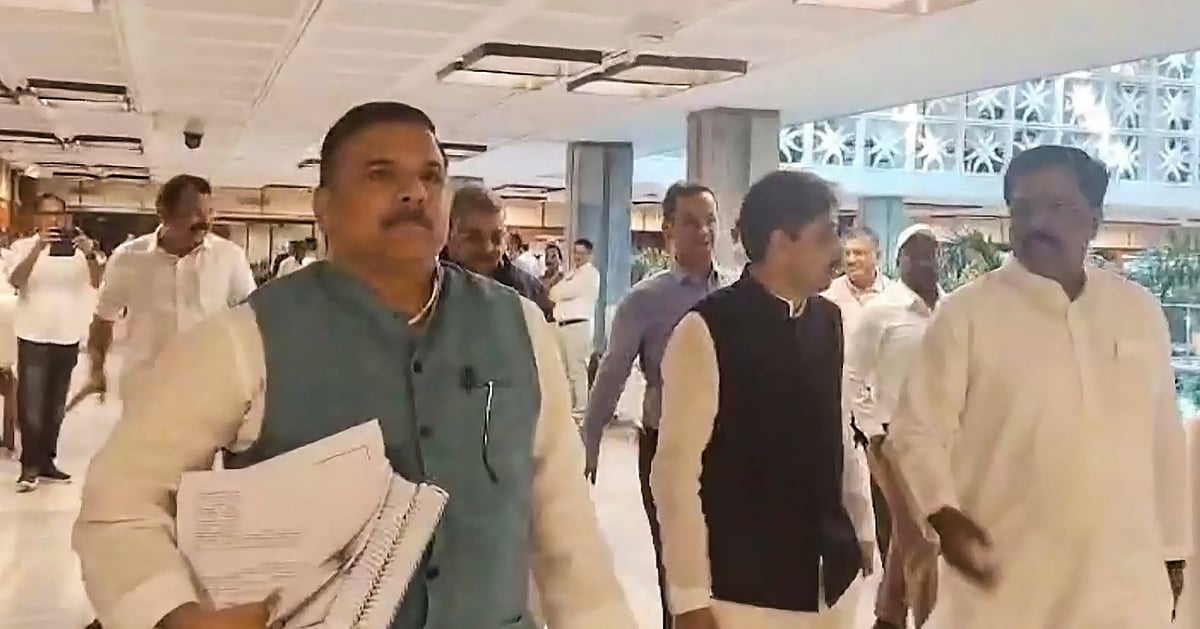 |
|
The political landscape in India is currently marked by a significant debate surrounding the tenure of the parliamentary panel on Waqf. The opposition parties have voiced their strong demand for an extension of this committee's mandate, citing the need for more time to thoroughly investigate and deliberate upon crucial matters relating to the administration and management of Waqf properties. The current deadline for the submission of the committee's report falls on the last day of the first week of the winter session of Parliament, commencing on Monday. This tight timeframe, according to the opposition, is insufficient for the comprehensive examination required given the complexity of the issues at hand. The Waqf Board, responsible for managing Muslim religious endowments, plays a critical role in the social and economic life of a significant portion of the Indian population. Its operations, financial transparency, and overall effectiveness are therefore subjects of considerable public and political interest.
The opposition's arguments center on the vast scope of the Waqf system and the intricate legal and administrative challenges associated with its oversight. They argue that rushing the report would compromise the quality of the findings and fail to deliver meaningful recommendations for improvement. The committee's responsibilities include reviewing the implementation of existing regulations, identifying areas of inefficiency or potential misuse of funds, and making suggestions for enhancing the transparency and accountability of Waqf administration. These tasks, the opposition emphasizes, necessitate thorough investigation and detailed analysis, requiring significantly more time than the current deadline allows. Failure to grant an extension, they warn, would undermine the parliamentary process and potentially lead to incomplete or flawed conclusions that do not adequately address the complexities inherent in Waqf governance.
The government, on the other hand, is yet to officially respond to the opposition's demand. Its position on this matter remains unclear, and the coming days are likely to witness intense political maneuvering and negotiations. The government's response will be closely watched, not only by the opposition but also by various civil society organizations and religious groups with a stake in the outcome. The debate extends beyond the immediate issue of the committee's tenure; it highlights the broader political dynamics surrounding religious institutions and the government's role in regulating their affairs. The handling of this situation could have far-reaching consequences, setting a precedent for future parliamentary committees and influencing the broader political discourse on matters related to religious endowments and community management.
Several factors contribute to the complexities surrounding Waqf administration in India. These include the historical legacy of the system, diverse regional practices, often outdated legal frameworks, and challenges in maintaining accurate records and ensuring equitable distribution of resources. These complexities require careful consideration by the committee, and the opposition's concern about the insufficient time allotted reflects a genuine desire to ensure a comprehensive and impactful investigation. The potential repercussions of a hastily prepared report extend beyond the immediate implications for the Waqf system itself. It could lead to a loss of confidence in the parliamentary process, negatively impacting the credibility of future investigations into other important areas of public concern. Thus, the ongoing debate over the tenure extension underscores a broader discussion about the balance between efficient parliamentary proceedings and the need for thorough and effective policymaking.
The upcoming days will be crucial in shaping the future trajectory of this issue. The government's response, the subsequent parliamentary debates, and the eventual outcome of the negotiations will all play significant roles in determining the future of the Waqf panel and its ability to effectively fulfill its mandate. The implications of this decision extend beyond the immediate political arena; they touch upon matters of religious freedom, community governance, and the very integrity of the parliamentary process itself. The nation watches closely as this critical debate unfolds, its outcome shaping not only the fate of the Waqf committee but also the wider landscape of Indian politics and social governance.
Source: Opposition demands tenure extension of parliamentary panel on Waqf
